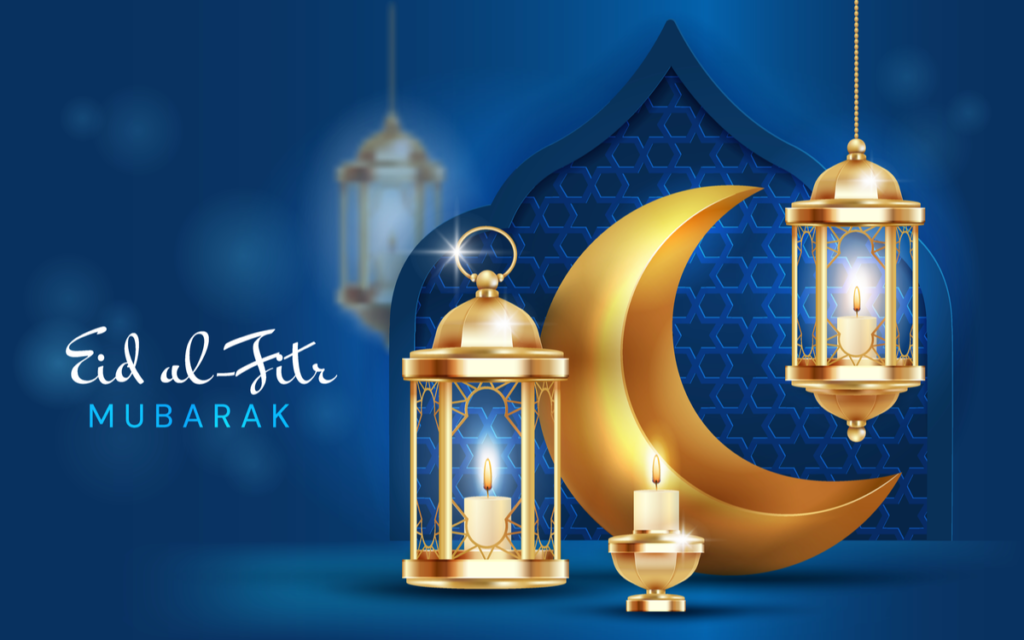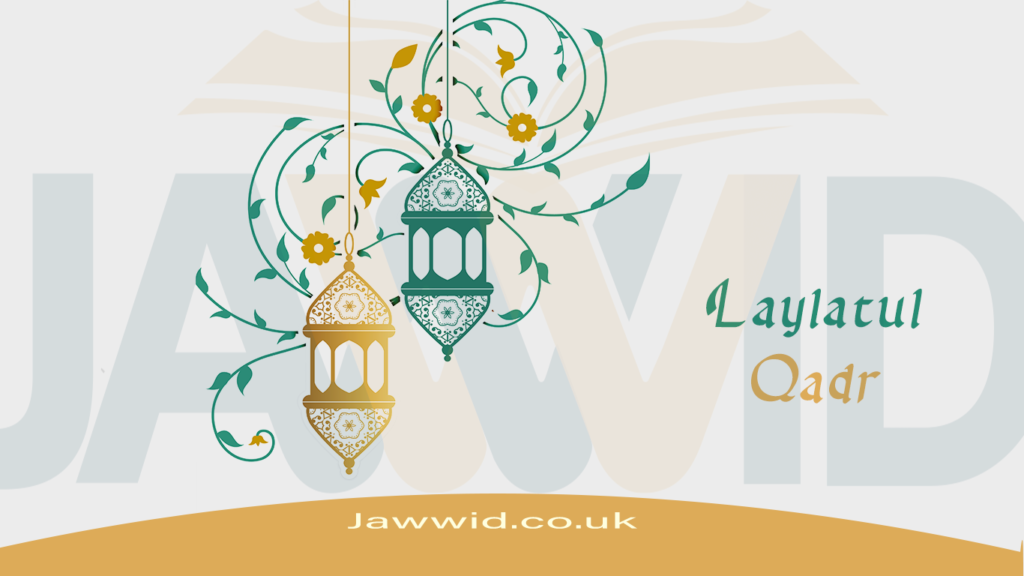The end of a month of fasting in Ramadan is marked by Eid al-Fitr, often known as “the celebration of breaking the fast.” It’s frequently a time when family and friends get together to celebrate the conclusion of a month of fasting during daylight hours.
When Prophet Muhammad arrived in Medina, he discovered people celebrating two special days on which they enjoyed themselves with pleasure and merriment, according to Anas, a well-known friend of the Islamic prophet. At this point, the Prophet said that Allah has set aside two days for celebration: Eid al-Fitr and Eid al-Adha are two Muslim holidays.
The Eid prayer is held in an open space such as a field, community centre, or mosque by the congregation. This Eid prayer has no call to prayer and only two units of prayer, with varying amounts of Takbirs and other prayer features depending on the branch of Islam practised. The Eid prayer is followed by a speech and a request to Allah, asking for forgiveness, kindness, peace, and blessings for all living beings on this planet. The speech also teaches Muslims on how to carry out Eid customs such as zakat. The Eid speech follows the Eid prayer, as opposed to the Friday prayer, which comes first. Listening to the sermon on Eid is optional, according to certain imams. Muslims visit family, friends, and acquaintances after prayers, or attend big communal gatherings in homes, community centres, or hired halls.
Focus on the Eid al-Fitr sunnahs.
Eid al-Fitr is an opportunity to practise the sunnah of the Prophet Muhammad (peace be upon him) and connect with Allah in addition to being a time of well-deserved feasting, greeting, and gladness.
In fact, the night before Eid al-Fitr is regarded as one of the holiest nights in the Islamic calendar. On the night before Eid, the Prophet (peace be upon him) would not sleep and would spend the entire night in worship. “On the first night of Rajab, the fifteenth night of Shaban, Thursday night, the night before Eid al-Fitr, and the night before Eid al-Adha, dua is not refused,” he (peace be upon him) remarked (As-Suyuti).
The night before Eid, after the fortunate month of Ramadan, is an opportunity to beg forgiveness, ask for acceptance of our good deeds over the month, and pray for the fulfilment of our needs and desires.
In the current conditions, we may still be able to fulfil some of the Eid al-Fitr sunnahs:
1. On Eid morning, we wash our best clothing and put on our best perfume.
2. Indulging in something delicious first thing in the morning. “The Messenger of Allah (peace be upon him) would not attend Eid prayers until he had eaten some dates… an odd number of them,” he said. (Bukhari, Hadith)
- In the morning, saying takbeer (Allahu Akbar) (until the time of the Eid prayer)
- Greeting one another and expressing delight, however this year it may be necessary to do so remotely. “Taqabbal Allahu minna ma minkum,” a customary Eid greeting, means “May Allah accept it (worship and good acts) from you and us.”
- Sadaqa and zakat al-Fitr are two types of almsgiving.
- Thank you for your blessings with sadaqa.
 Give sadaqah and thanks for your blessings
Give sadaqah and thanks for your blessingsMost families’ Eid al-Fitr celebrations revolve around food, with tables piled high with their favourite delicacies. However, it’s vital to remember that even on Eid, many families around the world will go hungry.
As a result, Muslims are obligated to pay zakat-al-Fitr (also known as fitrana), which is a charity food gift made before the Eid prayer. Every Muslim who has more food than they require owes it to others (read more about zakat al-Fitr here).
“The Messenger of Allah (peace be upon him) ordered zakat al-Fitr to purify the fasting person from indecent words or actions, and to provide sustenance for the destitute,” Ibn Abbas (may Allah be pleased with him) stated. Money is considered zakat for those who offer it before the Eid prayer, but only sadaqa for those who give it after the prayer.” (Abu Dawud, Ibn Majah, and Hadith)
The minimum payment is around 2 kg of staple commodities such as flour or rice. In the United Kingdom, this equates to about £5. More information on zakat-al-Fitr can be found here.
Eid ul-Fitr is also an excellent time to increase your sadaqah. As we prepare our Eid festivities, it’s crucial not to forget about the world’s most vulnerable families, such as those in Yemen and Syria who are struggling to feed their families.
Eid-al-Fitr involves distributing gifts to underprivileged children.
The giving of gifts, known as Eidi or Eidiya, is another popular Eid-al-Fitr custom. “Give gifts to one another, and you will love one another,” the Prophet Muhammad (peace be upon him) recommended (Hadith, Al Mufrad). Receiving Eid gifts is, understandably, a major highlight for children, and many anticipate being spoiled by their parents and relatives.



